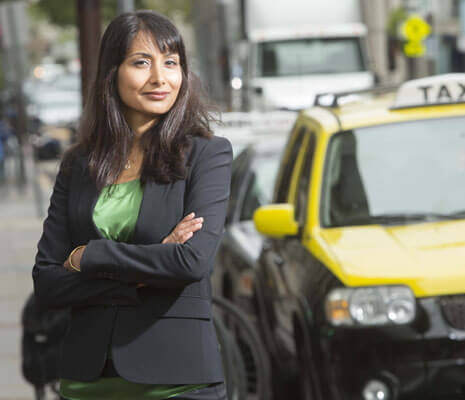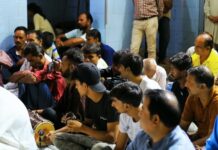Vidya Sethuraman
India Post News Service
The U.S. labor force is increasingly moving towards the gig economy. More than one-third of workers in the U.S. – overwhelmingly people of color and first generation immigrants – participate in the informal labor force, working long hours for low, inconsistent wages, and no benefits. California voters will weigh in on the gig economy via Prop. 22 on the November ballot, which seeks to keep app-based drivers as independent contractors, rather than employees. Experts discussed Prop. 22, the feasibility of the gig economy, and the impact of the COVID pandemic at an EMS Conference call on Oct 2, 2020.
Prop. 22 would exempt app-based delivery companies from providing drivers the employee benefits such as minimum wage, overtime, unemployment insurance and workers’ compensation that they had just obtained through AB5. Still, the proposition claims it would provide drivers with an earnings minimum, a health insurance stipend and vehicle insurance. Critics say this offer is dubious at best. Prop. 22 is a last-ditch effort to stop AB 5 from being implemented.
Dr. Veena Dubal, Professor of Law at the U.C. Hastings School of Law. Dr. Dubal is an ardent opponent of Prop. 22. Prop. 22 is the most dangerous labor law I have seen in my lifetime,” said Dubal, noting that drivers classified as independent contractors, also known as gig workers, often make less than half of the state’s minimum wage.

In 2012, the companies were paying more and the drivers were earning a lot more compared today. “Now, most people are working 60 hours a week and earn only 60% of what they got in 2012. They are angry, stressed out and not sleeping well.” “We are creating an underclass of people who are already on the margins of the labor force.
They have no access to health insurance or financial safety nets. This is so incredibly dangerous,” she said. Dubal has been a prominent advocate for AB5 and critic of Prop 22, which she argues will “codify the inability of drivers to predict their income.” She added Yes on Prop 22 will prevent Consumers who are injured, killed, abused, or raped while using these services from holding the companies liable.
Prop 22 is a carve out in law that allows app companies to deny their drivers rights and protections like paid sick leave, workers compensation or unemployment benefits. Prop 22 makes us all less safe by eliminating safety protections for riders and drivers and any liability these wealthy companies have to consumers.
Dr. Alexandrea Ravenelle, Professor in Sociology at the University of North
Carolina, Chapel Hill. Dr. Ravenelle is the author of “Hustle and Gig.” Ravenelle is an expert on the gig and sharing economy, which is made up of independent contract workers such as Uber drivers and Instacart workers. Alexandrea spoke about the gig economy in general, the effect of COVID on the gig economy in NYC.
She said current times are not the best to be gig workers. They are mostly working with strangers and this puts them at higher risk for COVID. Most of the gig workers didn’t apply for the unemployment benefits. They have faced a lot of difficulties during COVID and are looking forward to getting back to work as soon as possible. She feels in a few years many jobs will move towards 1099 employment, in which the corporates have less responsibilities.







